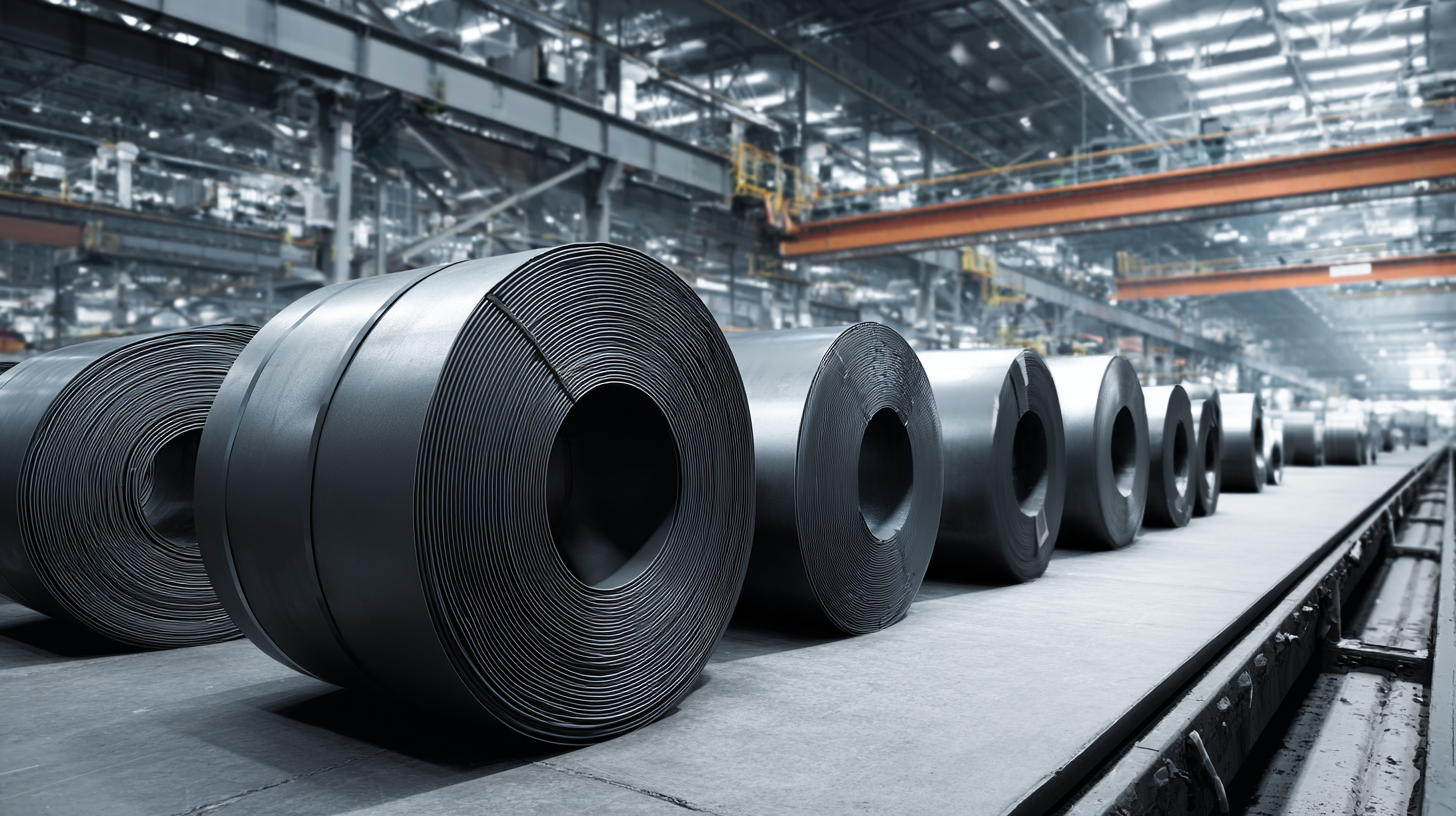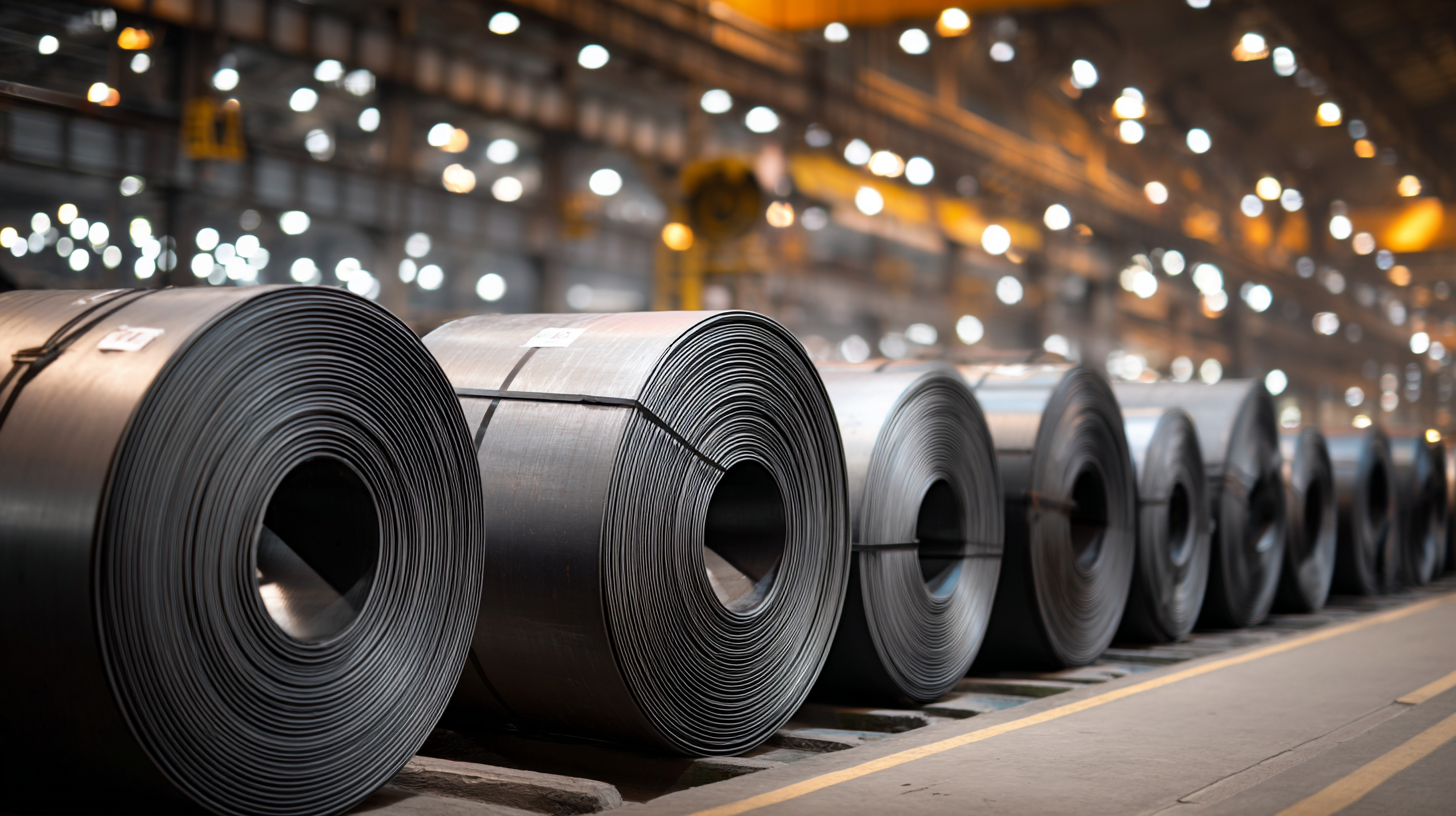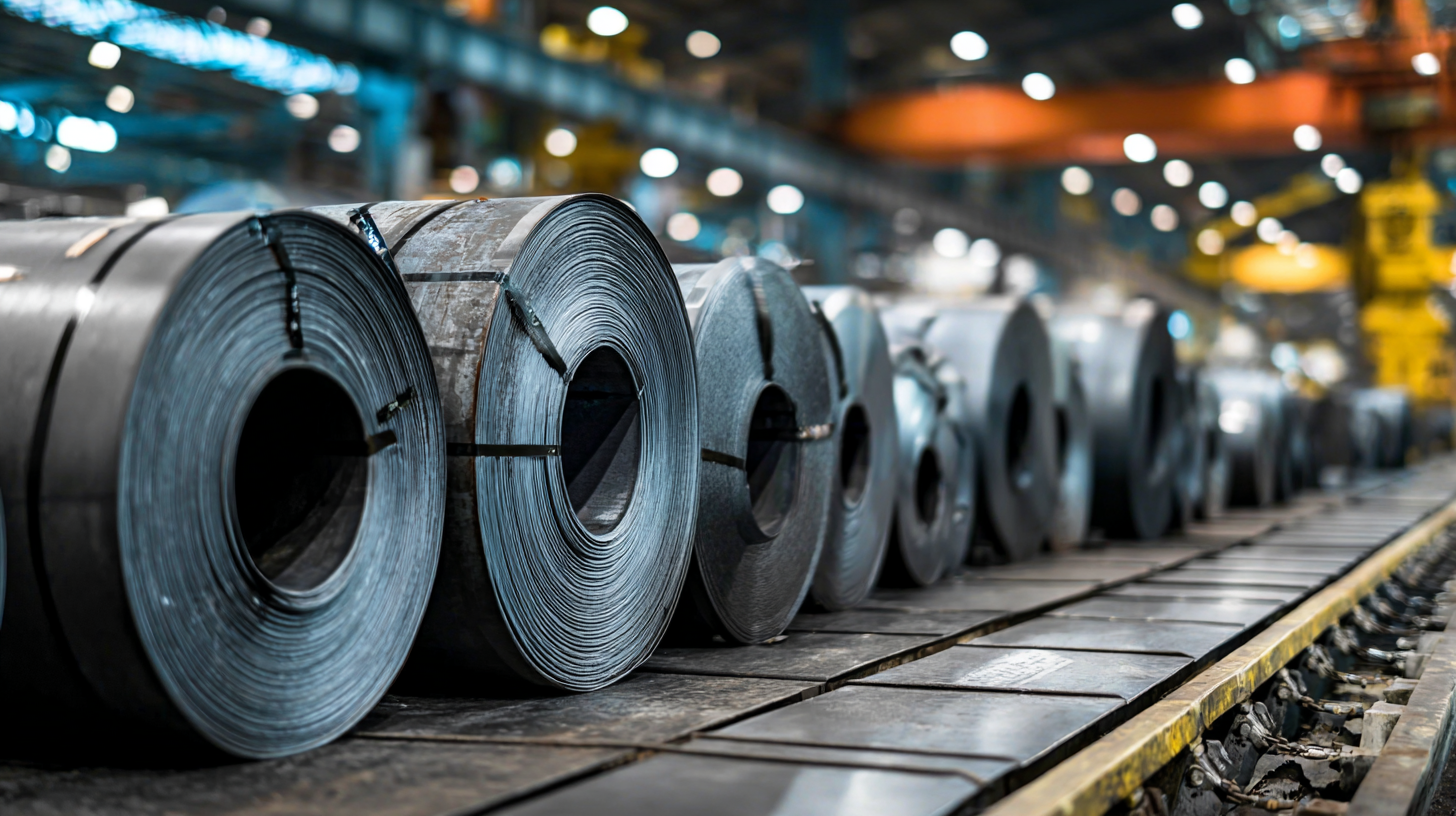In an era where manufacturing excellence is paramount, China stands out as a global leader, particularly in the production of Carbon Steel Coil. Known for its unwavering commitment to quality and innovation, Chinese manufacturers have solidified their reputation as trusted sources for high-performance carbon steel solutions, catering to industries that demand reliability and durability. With advanced technology, skilled labor, and stringent quality control measures, these manufacturers ensure that every roll of Carbon Steel Coil meets international standards and customer specifications.

This blog will delve into the unmatched manufacturing excellence found in China's carbon steel industry, exploring how it not only meets but exceeds the expectations of clients worldwide, establishing a legacy of quality that endures over time. Join us as we uncover the secrets behind the exceptional manufacturing processes and the significant impact of carbon steel products in various applications across the globe.
The applications of carbon steel coils span various industries, highlighting their versatility and integral role in modern manufacturing. In the construction sector, carbon steel coils are essential for producing beams, sheets, and reinforcements, providing structural integrity and durability. As industries shift towards sustainable practices, eco-friendly production methods for these coils are gaining traction, aligning with the global commitment to reduce carbon footprints. Advanced techniques, such as utilizing closed space stockyards, are examples of how manufacturers are innovating towards greener operations.

In the automotive industry, carbon steel coils play a crucial role in manufacturing components that require both strength and lightweight properties. As the industry moves towards electric vehicles, the demand for high-quality carbon steel has surged, emphasizing the need for efficiency and reliability in production. Manufacturers are also focusing on developing low-carbon steel solutions, driven by market trends that prioritize sustainable materials. This evolution not only meets the diverse needs of industries but also supports the overarching goal of achieving carbon neutrality in steel production.
Carbon steel coils are vital components in various industrial applications, characterized by their strength, versatility, and cost-effectiveness. An overview of common types of carbon steel coils reveals three main grades: low carbon, medium carbon, and high carbon. According to the World Steel Association, low carbon steels, typically containing up to 0.25% carbon, are widely utilized in automotive and construction sectors due to their excellent weldability and ductility. Notably, the global production of low carbon steel accounted for approximately 45% of total steel production in 2022, underscoring its predominant role in the market.
Medium carbon steel coils, which contain carbon content in the range of 0.25% to 0.60%, strike a balance between strength and ductility, making them suitable for applications such as machinery and structural components. Reports from Grand View Research indicate that the medium carbon steel market is projected to grow at a CAGR of 4.2% over the next five years, driven by increased demand from the manufacturing and construction industries. On the other hand, high carbon steels, with carbon content exceeding 0.60%, offer enhanced hardness and wear resistance, making them ideal for tools and machinery parts. In summary, understanding the different grades of carbon steel coils is essential for industries seeking tailored solutions to meet their specific manufacturing needs.
China's manufacturing sector is rapidly establishing itself as a leader in providing high-quality carbon steel solutions, thanks to the integration of advanced technologies aligned with Industry 4.0 principles. The adoption of artificial intelligence, the Industrial Internet of Things (IIoT), and blockchain within the production processes enhances operational efficiency and sustainability. According to recent industry analyses, leveraging these modern technologies not only improves productivity but also significantly reduces embodied carbon emissions through more optimized manufacturing practices. This positions Chinese manufacturers at the forefront of the global shift towards greener production methods, appealing to environmentally conscious industries.
Moreover, China’s commitment to innovation has led to advances in low-carbon production techniques, which are crucial given that the steel industry is a major contributor to global CO2 emissions. Reports indicate that innovative solutions, including green hydrogen applications, are pivotal in transitioning towards “green steel” processes. As the global demand for sustainable materials surges, choosing Chinese manufacturers offers access to cutting-edge technologies and sustainable practices, ensuring that companies can meet their carbon reduction goals while benefitting from competitive pricing and high-quality products.
The application of carbon steel coils has revolutionized manufacturing processes in various industries. Case studies demonstrate how leading manufacturers in China have successfully implemented these materials, enhancing product durability and production efficiency. For instance, a report by the International Steel Association highlighted that carbon steel coils account for over 30% of the total steel consumption in the construction sector alone. This trend is reflective of their versatility and cost-effectiveness, making them a preferred choice for many manufacturing processes.
Another notable case involves an automotive manufacturer that adopted carbon steel coils for production. By switching to high-strength, low-alloy (HSLA) carbon steel, the company improved vehicle safety while reducing weight by 15%. According to the Automotive Engineering journal, such innovations not only lead to enhanced performance but also contribute significantly to fuel efficiency—an essential factor in today's market, where sustainability is a key concern. With the demand for carbon steel coils projected to exceed 300 million tons globally by 2025, the focus on unmatched manufacturing excellence in China presents significant opportunities for growth and innovation across various sectors.
| Case Study ID | Industry | Application | Material Type | Coil Thickness (mm) | Production Volume (tons) | Implementation Date |
|---|---|---|---|---|---|---|
| CS001 | Automotive | Body Panels | Carbon Steel | 1.2 | 5000 | 2023-01-15 |
| CS002 | Construction | Structural Beams | Mild Steel | 3.0 | 15000 | 2023-03-22 |
| CS003 | Manufacturing | Machinery Parts | High Carbon Steel | 2.5 | 8000 | 2023-07-10 |
| CS004 | Energy | Pipelines | API Steel | 4.0 | 25000 | 2023-05-05 |
| CS005 | Electronics | Component Housing | Cold Rolled Steel | 0.8 | 3000 | 2023-02-28 |
In the realm of carbon steel coil manufacturing, quality assurance practices play a pivotal role in ensuring that products meet stringent industry standards. Leading manufacturers in China have implemented rigorous quality control measures throughout the production process, from raw material selection to final inspection. This commitment to quality begins with sourcing high-grade carbon steel and involves meticulous checks at every stage of fabrication. Advanced technologies, such as automated testing systems and real-time monitoring, are employed to detect any inconsistencies early, ensuring that the final product is not only durable but also meets specific customer requirements.

Moreover, these manufacturers adhere to international quality standards, such as ISO 9001, to formalize their quality assurance processes. Regular audits and assessments are conducted to evaluate compliance and areas for improvement. By fostering a culture of continuous improvement, manufacturers can efficiently respond to market demands while maintaining high levels of product integrity. This dedication to excellence not only enhances their reputation but also builds long-lasting relationships with clients who rely on superior carbon steel coil solutions for their own operations.



